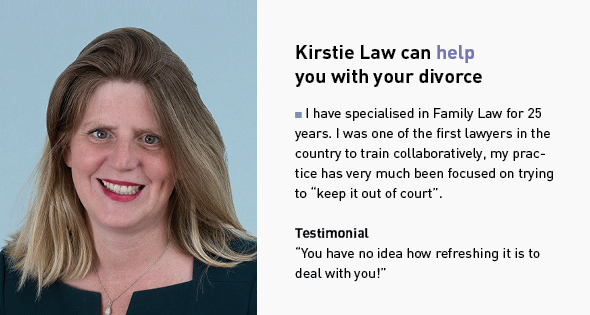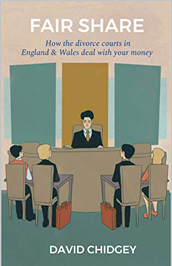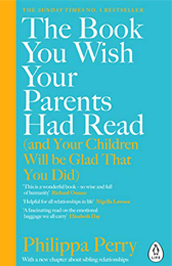Splitting Assets Fairly in Divorce

- This blog contains affiliate links, which we may receive a commission for purchases. The decision is yours, whether or not you decide to buy.
When I see new clients their biggest concern is often the “cost of the divorce”. In practice the divorce itself does not normally cost very much.
You do not even need to instruct a lawyer because the paperwork can be done using the government’s online website, but note it is often inadvisable to apply for decree absolute until financial matters have been resolved.
By way of example, if the other person has a pension, spousal rights will be lost on decree absolute. Where people can end up spending potentially thousands of pounds is on the financial settlement.
The interesting thing is that most people say they simply want a fair settlement. The problem is fairness is subjective and people are often surprised that things they think are highly relevant would not be considered so by a judge.
By way of example, it is irrelevant whose decision it is to end the marriage or if someone has committed adultery (unless they are planning to cohabit with the person concerned, in which case the cohabitee’s financial position may, and I emphasise may, be relevant when it comes to the court considering needs – see below).
In any divorce settlement where there are children the first consideration is the welfare, while a minor, of any child of the family. It is important to appreciate that there is no one right answer or fixed formula to calculate what the settlement should be.
Instead the judge has a checklist of factors which he or she should take into account including:
- The income, earning capacity, property and other financial resources which each of the parties to the marriage has, or is likely to have in the foreseeable future, including in the case of earning capacity any increase in that capacity which it would, in the opinion of the court, be reasonable to expect a party to the marriage to take steps to acquire.
- The financial needs, obligations and responsibilities which each of the parties to the marriage has or is likely to have in the foreseeable future.
- The standard of living enjoyed by the family before the breakdown of the marriage.
- The age of each party to the marriage and the duration of the marriage.
- Any physical or mental disability of either of the parties to the marriage
- The contributions which each of the parties has made, or is likely in the foreseeable future, to make to the welfare of the family, including any contribution by looking after the home or caring for the family.
- The conduct of the each of the parties, if that conduct is such that it would, in the opinion of the court, be inequitable to disregard it.
- The value to each of the parties to the marriage of any benefit which, by reason of the dissolution of the marriage, that party will lose the chance of acquiring.
Clearly there can be conflicts with some of the points on the checklist.
By way of example the fact that one person has contributed all the assets does not prevent the other party needing them, particularly if for example there are children requiring a home. In most cases it is inevitable that it will not be possible for both parties to continue to have the sort of standard of living they enjoyed during the marriage and for cut backs to be required.
There can also be much argument about what someone can reasonably be expected to earn particularly if they have an ongoing contribution to the children. (Should hours of work be increased even if this means more childcare has to be paid for?)
When I see clients, initially, I tend to give them an indication as to where I think the likely settlement will be which, in some cases will involve a larger bracket than others.
People often find this helpful if they subsequently have direct discussions or try and resolve matters with the assistance of a mediator.
If it is not possible to reach an agreement, and an application is made to the court, then it is very important when preparing the Form E, that you do complete the narrative sections fully if there are relevant factors such as, for example, an inheritance or a risk of redundancy.
When it comes to dealing with financial matters I would recommend seeing a solicitor early on to talk through the benefits of resolving your case out of court, including direct discussions, mediation, collaboration and arbitration.
If you cannot resolve matters out of court then I would recommend that, as a minimum, you instruct a solicitor to assist with the completion of the narrative sections of the Form E. Before agreeing any settlement, including at mediation, you should have the benefit of advice from your solicitor.
It is important to check that, not only the capital settlement is right, but also that you have taken into account pensions and, if appropriate, dealt with child and spousal maintenance. Try not to get fixated on any initial view you may have had as to what would be a fair settlement.
It is not, for example, always 50/50 in respect of capital if the person with whom the children spend the majority of their time needs more than this in order to rehouse.
Finally, it is important to bear in mind that if you can reach an agreement outside of court you will save tens of thousands of pounds. If you have children why give it to lawyers when instead your children could benefit?
Written by Kirstie Law Solicitor, Collaborative Lawyer and Mediatorat Thomson Snell & Passmore. www.ts-p.co.uk
PHOTO CREDIT: GRANITARCHITECTS
You may also like
Books
Buy now from Amazon
- The Co-Parenting Handbook
- Fair Share: How the divorce courts in England & Wales deal with your money
- The Book You Wish Your Parents Had Read THE #1 SUNDAY TIMES BESTSELLER
Podcast
This personal finance podcast is for women, including female entrepreneurs to learn personal finance, money mindset & practical money management tips to be financially confident. To get in control of money, to budget, gain financial confidence, learn how to invest, save money & manage money mindset and behaviours. Hosted by a multi- award winning qualified financial planner and financial coach.
- Listen to the In Her Financial Shoes Podcast
- Catherine Morgan full profile
- More professional podcasts
Articles
- 8 Ways You Can Stay Financially Fit After Your Divorce
- Five Things To Let Go Of After Divorce
- Buying A Home Post Divorce Part 1
Videos
Practical advice and tips from professionals on what to do with issues and challenges around divorce from parenting to finance.
Events
Practical tips & advice designed to help people going through divorce, whether online or in person.
Useful links
Here's a selection of organistaioins from parenting to finance to help you with your divorce.
Legal professionals


.jpg)





.jpg)






